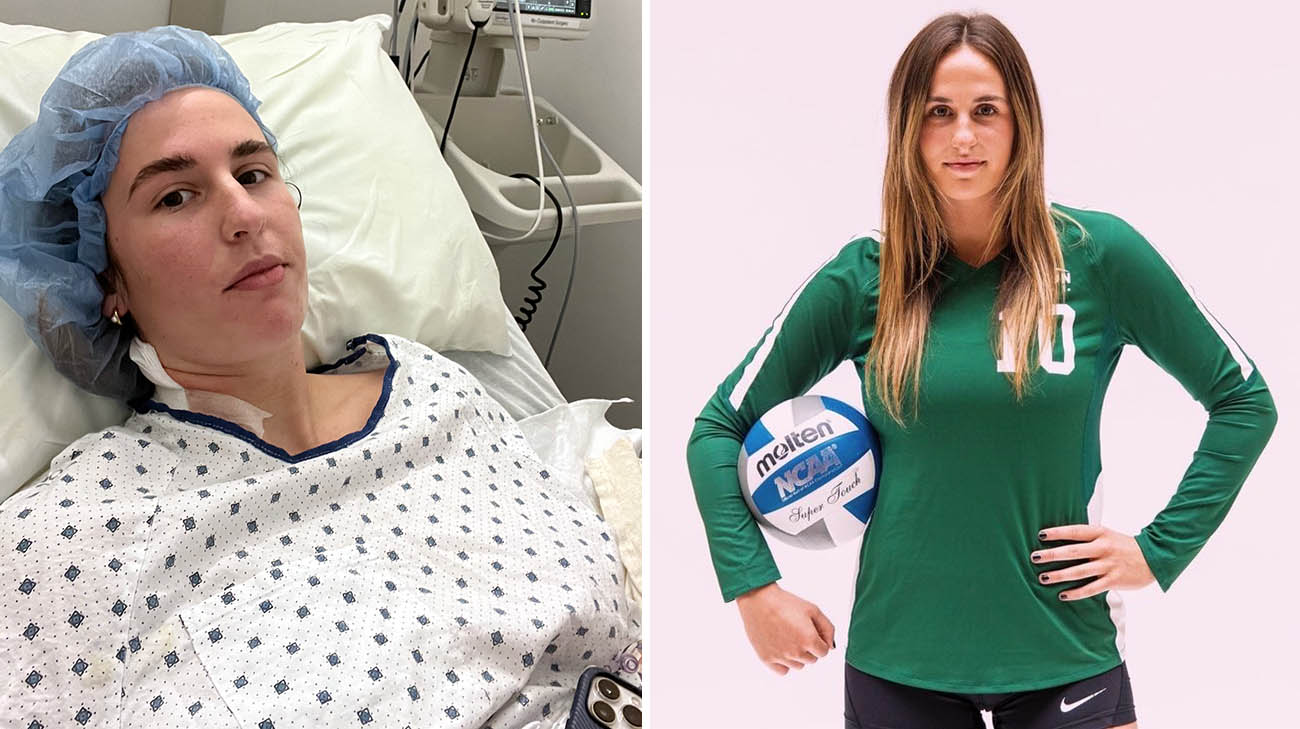
Curtains and window shades drawn, and with her face silhouetted in darkness, then-Cleveland State University student Madison Quirino was ready for her first virtual appointment with Cleveland Clinic health and sports performance psychologist Matthew Sacco, PhD. The meeting was prompted by lingering effects of a concussion Madison suffered.
“The room was dark because Madison was so light-sensitive from her concussion,” recalls Dr. Sacco, who met with Madison as part of the Cleveland Clinic sports medicine team that provides comprehensive care to all Cleveland State University (CSU) athletes. “She was visibly depressed, slow to speak, and everything was a laborious task for her. It was startling.”
Bright and energetic, Madison now speaks briskly and clearly about the harrowing months spent after suffering a severe concussion in late May 2023. A lifelong athlete, on the path to graduate one year early from CSU, Madison passed out while shadowing a physician assistant (PA) at a hospital in Akron, Ohio, striking her head on the examination table as she fell to the floor. Additionally, Madison incurred concussions three times previously as a soccer player.
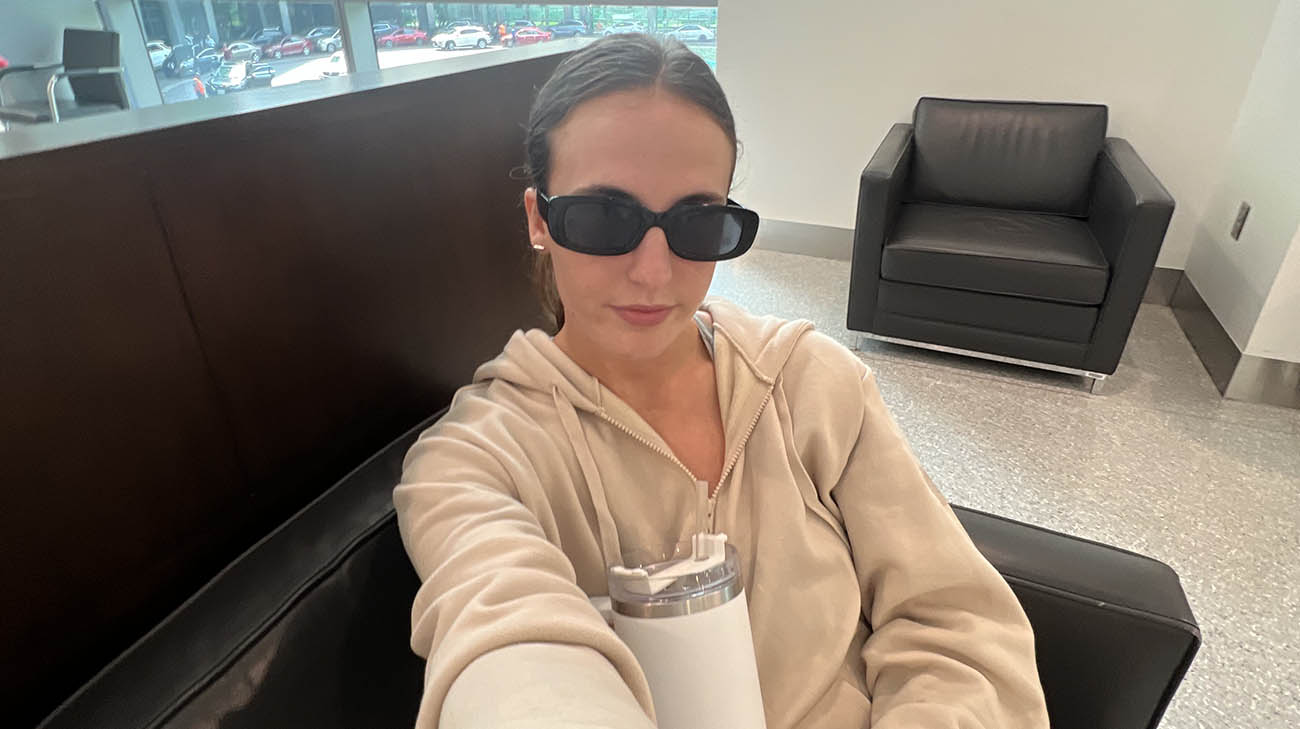
Madison frequently needed to wear sunglasses and be in darker rooms because she had light sensitivities as a result of her concussion. (Courtesy: Madison Quirino)
“I was so embarrassed because they called a ‘code blue’ and an emergency team rushed in to help me,” says Madison, now a first-year graduate student in the PA program at The George Washington University in Washington, D.C. “I thought I would be fine in a few days or weeks, like with my previous injuries. But the symptoms wouldn’t go away.”
Those symptoms included feeling nauseous, with painful headaches that would last for hours or even days. Light sensitivity was a triggering problem, so Madison would rarely leave her house or spend any time in public.
While Madison had considered continuing her collegiate volleyball career as a graduate student, she soon realized that would unlikely be an option because of her ongoing condition. In fact, she couldn’t even attend practices and games of her former CSU teammates because she couldn’t tolerate the noise and light inside Woodling Gymnasium, nor could she risk being accidentally struck by a volleyball.
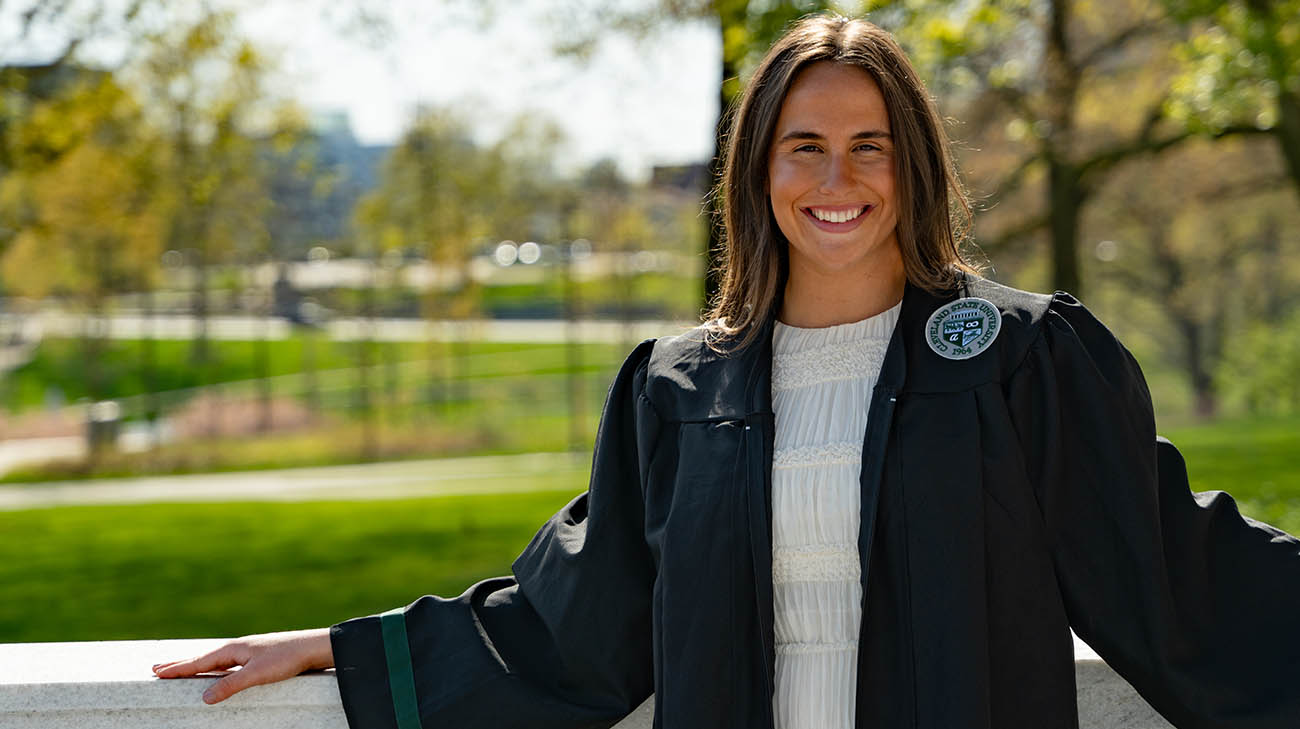
Madison graduated from Cleveland State University one year early. (Courtesy: Madison Quirino)
“This concussion was definitely a lot worse than the others. I was symptomatic for months, I couldn’t drive, and I would sometimes stay in bed all day,” adds Madison. “It was very isolating. and I wondered if I would ever feel better.”
While her physical symptoms continued, her mental health suffered, too. Anxious, depressed, and even prone to panic attacks, Madison reached out for help at the insistence of her mom, Lori, and dad, Nick. Given Cleveland Clinic provides medical and mental health services to her CSU team, Madison reached out to Dr. Sacco. For several months, they met weekly in counseling sessions designed to improve her mental health while her physical injuries slowly healed.
Through his work with Cleveland Clinic’s Concussion Center, Dr. Sacco gradually helped Madison with information and techniques that would enable her to better tolerate the lengthy and often unpredictable timetable tied to concussive injuries. He encouraged her learn to cope, pace herself, trust her medical team and have faith her health issues would ultimately improve.
“What can be so frustrating for patients is that a concussion is not like other injuries,” he explains. “Unlike a broken leg, for example, where you put a cast on it and it should typically heal in a certain amount of time, concussions often follow no specific timeline. And it can be hard for people to maintain hope when every day starts to feel the same. A lot of emotions can bubble to the surface.”
Two techniques he suggested Madison use –which she continues to employ even after fully recovering from her injury – are meditation and journaling. Every morning, Madison devotes 20 minutes to meditating, using physiological relaxation strategies including diaphragmatic breathing, muscle relaxation and Pilates exercises to keep her calm and centered.
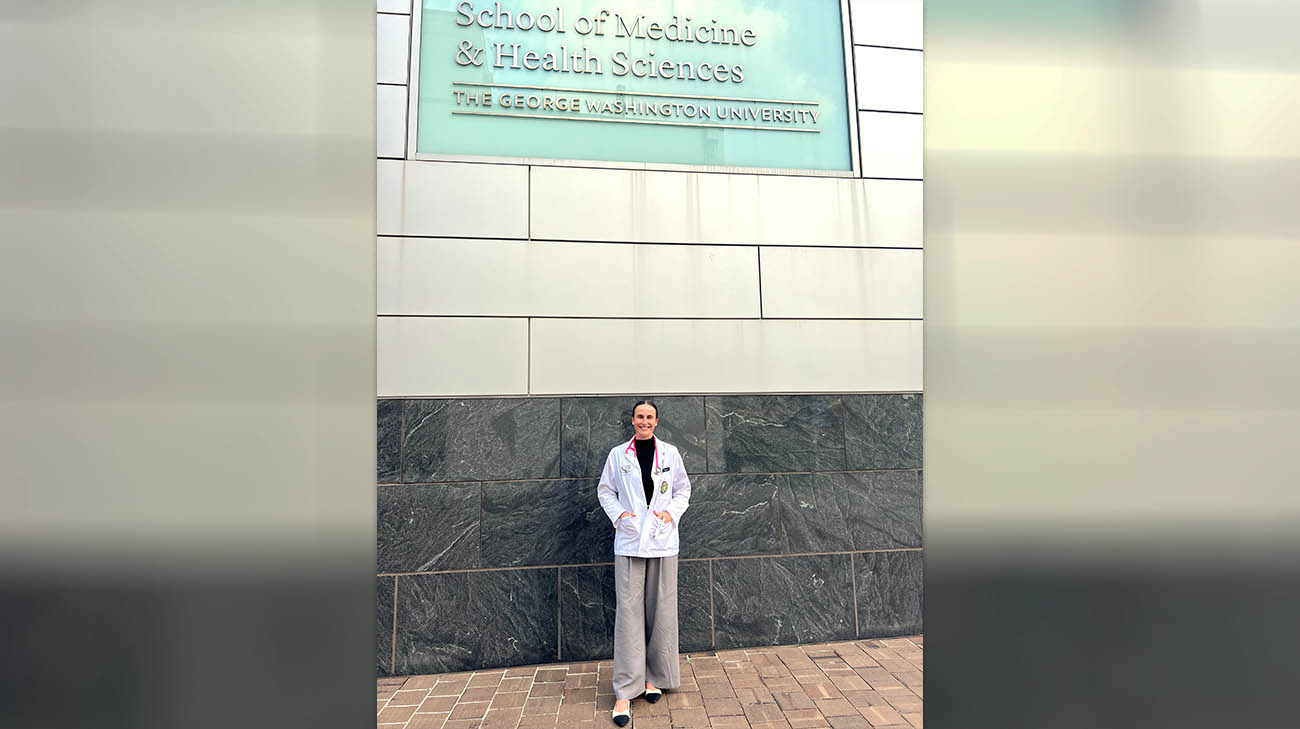
Madison is now a first-year graduate student in the PA program at The George Washington University. (Courtesy: Madison Quirino)
Madison also regularly keeps a journal of her thoughts, often rereading what she has written weeks or months later to comprehend and appreciate how she has grown and evolved during that time. As Dr. Sacco points out, this reflection slows down a person’s thought process and allows them to “offload thoughts from their working memory so their mind isn’t amped up when it doesn’t need to be.”
He praises Madison for the work she put into her therapy, always coming to their sessions with perceptive questions and perspectives, and then dutifully practicing the exercises and techniques that were important to her.
About six months into their sessions, Dr. Sacco joined the virtual appointment and was pleasantly surprised to see light. “Madison was sitting in a room with the lights on and the window coverings open. I could see she’d turned a corner. It showed all the hard work she put into therapy dictated how much she improved.”
As Madison recalls, her severe physical symptoms associated with the concussion finally waned. She also underwent a procedure with spine specialist Kush Goyal, MD, for targeted pain relief.
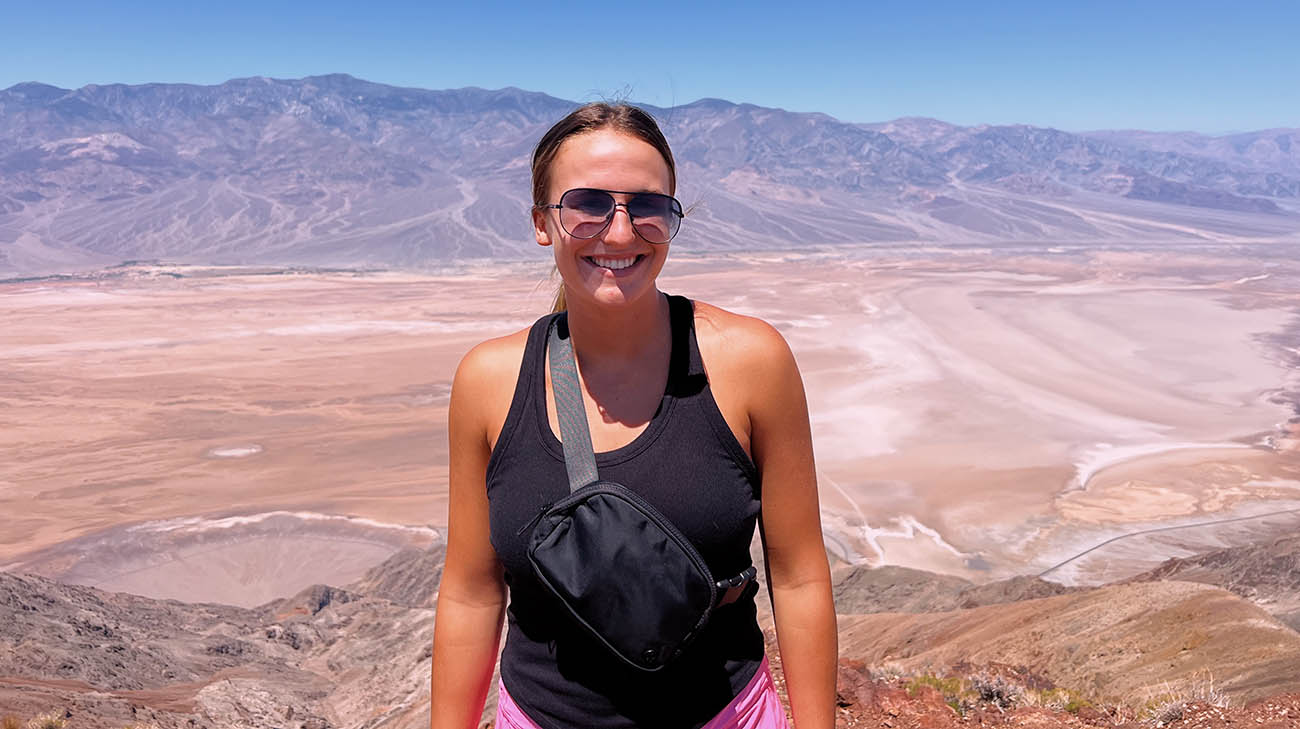
Madison uses meditation and journaling to help aide her continued recovery efforts. (Courtesy: Madison Quirino)
She believes her improved mental state was a factor in her physical recovery. “Therapy really helped me with my concussion recovery. I think one thing that had been holding me back was anxiety, and when I started taking care of that and focusing on my mental health, I think that’s when I finally started feeling better physically, too.”
Dr. Sacco sees Madison as a role model for younger adults and teenagers facing stressful situations, and encourages anyone struggling with school, relationships, injuries and other stressors to seek support from trusted friends and family, but to also find someone, such as a therapist or counselor, who can lend more objectivity to their situation.
“Madison went through a lot, and it’s gratifying to see her doing so well now. The person I see periodically during virtual check-ins seems nothing like the person I originally saw. It may not be easy, but Madison shows that with hard work and commitment, it can be done.”
Related Institutes: Neurological Institute, Orthopaedic & Rheumatologic Institute

